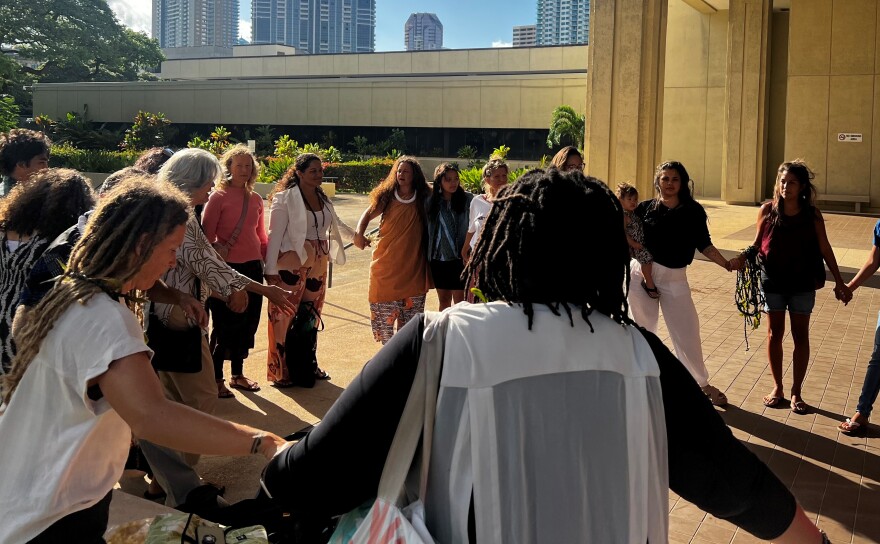The state has settled a court case that further clarifies the way that midwives can work in the state of Hawaiʻi.
State legislators passed a law this year to better regulate midwifery. It made some changes to a controversial 2019 law that effectively barred traditional Native Hawaiian midwives from practicing, and included criminal penalties for violations.
Last year, the Native Hawaiian Legal Corporation and the Center for Reproductive Rights represented midwives who brought a lawsuit against the state. The parties settled the case last week.
Although the law enacted this year improved protections for traditional Native Hawaiian midwifery, Center for Reproductive Rights lawyer Pilar Herrero explained that the settlement helps solidify those protections.
“It doesn't change the law, it doesn't rewrite the law, but it is a legal document and it shows that the state is agreeing that this is what the law means,” she said.
For example, it makes clear that although there are civil fines for violating the midwifery law, there are no criminal penalties. It also ensures that midwives in Hawaiʻi can be certified through an apprenticeship pathway, as there are no accredited schools for midwifery in the state.
That pathway to licensure through the apprenticeship is one of the reasons why Ezinne Dawson, a midwife and plaintiff, felt relief through the new law and court settlement.
“ That's the way I believe, is an opportunity to expand access to midwifery, especially here on the island,” she said.
“ One of the things that we are experiencing now in Hawaiʻi is a shortage of providers … it's a relationship that goes both ways. We don't take on all of the choices for our moms, we help her to make the choices based off of the information that's out there.”
Kiʻi Kahoʻohanohano, a midwife and plaintiff in the case, explained that since the law was changed, she’s been able to resume teaching the next generation of midwives.
“I'm also training up the young ones to be able to take on my role as a care provider and mālama these folks. They learn in the doing so that's the first step right now,” Kahoʻohanohano said.
“I have had quite a few calls, even just since yesterday, of folks that I have served, and they're hāpai again. And so I think the momentum in general within the community is really strong, really high, just feeling like the fact that they can even call me again and feel good about it and don't feel limited in that is really monumental.”
Hawaiʻi Public Radio exists to serve all of Hawai’i, and it’s the people of Hawai’i who keep us independent and strong. Help keep us strong to serve you in the future. Donate today.






